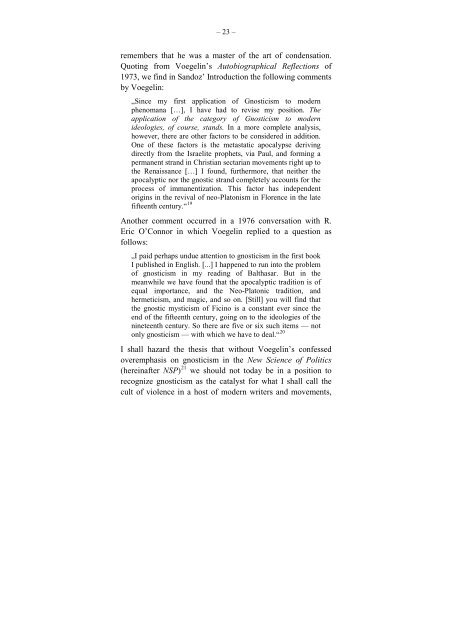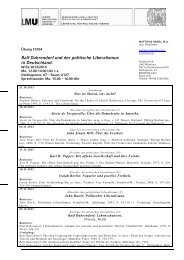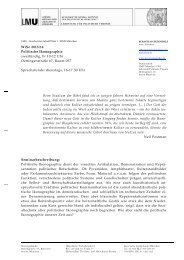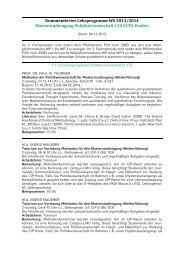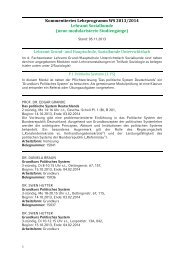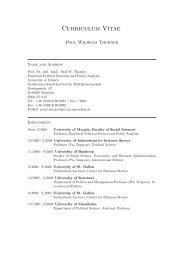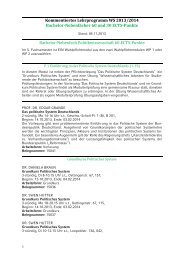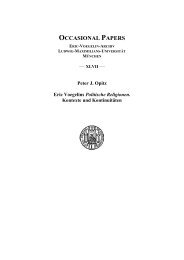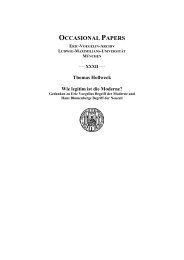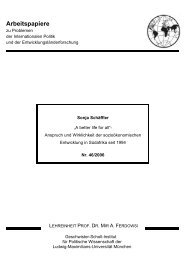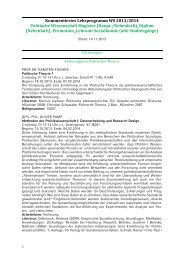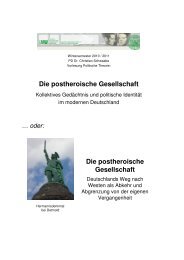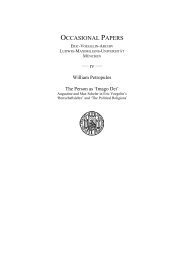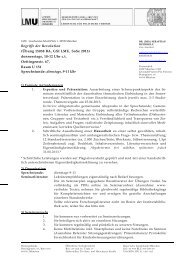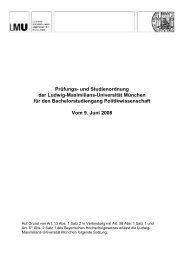Eric Voegelin.pdf - Geschwister-Scholl-Institut für Politikwissenschaft
Eric Voegelin.pdf - Geschwister-Scholl-Institut für Politikwissenschaft
Eric Voegelin.pdf - Geschwister-Scholl-Institut für Politikwissenschaft
You also want an ePaper? Increase the reach of your titles
YUMPU automatically turns print PDFs into web optimized ePapers that Google loves.
– 23 –<br />
remembers that he was a master of the art of condensation.<br />
Quoting from <strong>Voegelin</strong>’s Autobiographical Reflections of<br />
1973, we find in Sandoz’ Introduction the following comments<br />
by <strong>Voegelin</strong>:<br />
„Since my first application of Gnosticism to modern<br />
phenomana […], I have had to revise my position. The<br />
application of the category of Gnosticism to modern<br />
ideologies, of course, stands. In a more complete analysis,<br />
however, there are other factors to be considered in addition.<br />
One of these factors is the metastatic apocalypse deriving<br />
directly from the Israelite prophets, via Paul, and forming a<br />
permanent strand in Christian sectarian movements right up to<br />
the Renaissance […] I found, furthermore, that neither the<br />
apocalyptic nor the gnostic strand completely accounts for the<br />
process of immanentization. This factor has independent<br />
origins in the revival of neo-Platonism in Florence in the late<br />
fifteenth century.“ 19<br />
Another comment occurred in a 1976 conversation with R.<br />
<strong>Eric</strong> O’Connor in which <strong>Voegelin</strong> replied to a question as<br />
follows:<br />
„I paid perhaps undue attention to gnosticism in the first book<br />
I published in English. [...] I happened to run into the problem<br />
of gnosticism in my reading of Balthasar. But in the<br />
meanwhile we have found that the apocalyptic tradition is of<br />
equal importance, and the Neo-Platonic tradition, and<br />
hermeticism, and magic, and so on. [Still] you will find that<br />
the gnostic mysticism of Ficino is a constant ever since the<br />
end of the fifteenth century, going on to the ideologies of the<br />
nineteenth century. So there are five or six such items — not<br />
only gnosticism — with which we have to deal.“ 20<br />
I shall hazard the thesis that without <strong>Voegelin</strong>’s confessed<br />
overemphasis on gnosticism in the New Science of Politics<br />
(hereinafter NSP) 21 we should not today be in a position to<br />
recognize gnosticism as the catalyst for what I shall call the<br />
cult of violence in a host of modern writers and movements,


